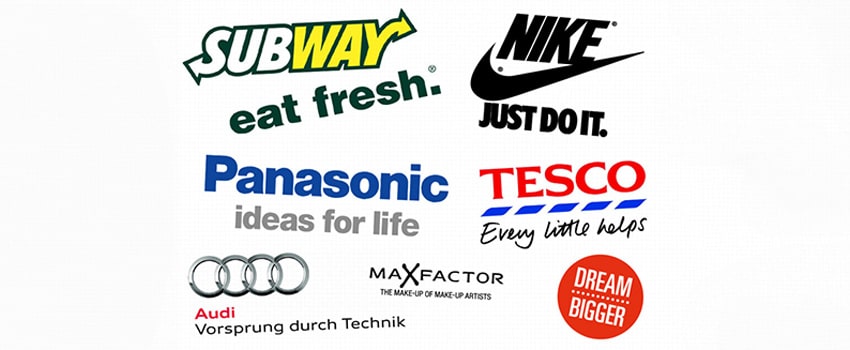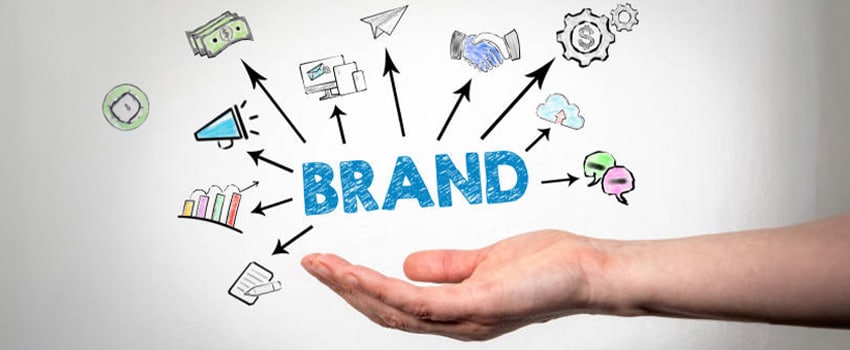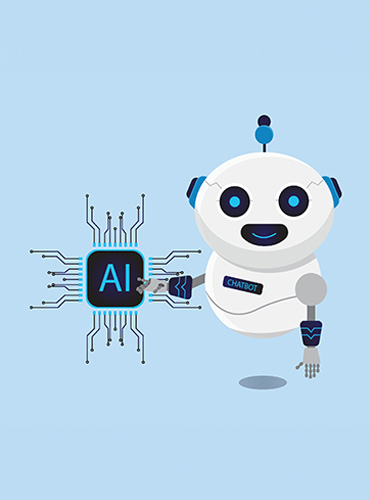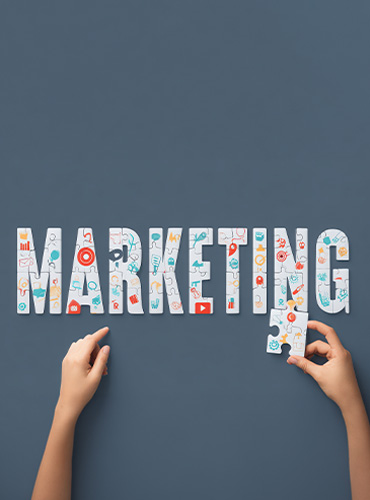
Brand slogans do more than just sound catchy—they drive real business results. Studies show 60% of customers remember brands better when paired with a strong slogan. Companies using memorable slogans see up to 30% higher ad engagement rates, proving these short phrases pack serious marketing power.
We believe the best company slogans condense complex brand identities into memorable phrases that capture both personality and core values. Throughout this article, we’ll show you what makes these phrases stick in consumers’ minds for decades and how you can create one that elevates your brand to new heights.
The Psychology Behind Powerful Brand Slogans
The human brain processes emotional experiences differently than neutral ones. Research shows our brains prioritize emotional information, making slogans that trigger feelings stick in memory. This emotional prioritization isn’t random – experiences that stir emotions get tagged with an “important!” label in our minds, enhancing memory encoding.
How emotions cement brand recall
Emotion works as memory’s superglue. Studies prove that placing brands within moments of heightened emotional response significantly boosts consumers’ ability to connect brand names with advertising content. This means emotionally rich slogans tap directly into the limbic system – the brain’s control center for emotions and memories.
The impact happens almost instantly. Our emotional response to advertising occurs within 300 milliseconds – much faster than rational thinking. This speed explains why emotionally-charged slogans often bypass logical consideration completely.
Words carrying emotional weight like “love,” “happiness,” and “freedom” are encoded and recalled with greater accuracy than neutral words such as “table,” “pen,” or “highway”. This processing advantage gives emotion-filled slogans a substantial memory edge.
Successful emotional branding creates intentional “misattribution” – convincing consumers to link the emotions from an advertisement to the brand itself rather than just the ad. This psychological technique builds lasting associations that drive future purchasing decisions.
Why rhythm and repetition matter
Our brains naturally hunt for patterns and familiarity. Slogans using linguistic devices like rhyme, alliteration, and rhythm engage the brain’s pattern recognition systems, dramatically enhancing memorability.
Research shows only about 16% of advertising slogans use these memory-enhancing techniques, yet they prove exceptionally effective. The most powerful approaches include:
- Rhyme – Creates sound connections that establish neural links (M&Ms: "Melts in your mouth, not in your hands")
- Alliteration – Repeating initial consonant sounds strengthens recall
- Rhythm – Provides structure that makes slogans easier to remember
- Repetition – Reinforces message through multiple exposures
The brain loves simplicity. Straightforward slogans reduce cognitive load, making them easier to process and remember. This explains why concise slogans like Nike’s “Just Do It” achieve legendary status – they minimize mental effort while maximizing impact.
Key Elements That Make Powerful Brand Slogans Work
The best brand slogans are masterpieces of verbal efficiency. When we study famous slogans that have lasted decades, three critical elements consistently form the foundation of their success.
Simplicity and clarity
Great slogans distill complex ideas into concise, memorable phrases that customers instantly grasp. Successful brand slogans strip away everything unnecessary and focus solely on what truly matters. The most effective slogans communicate with crystal clarity—typically in just 2-4 words, and never exceeding 7-8 words.
Simplicity delivers major advantages for brand slogans. It makes them immediately recognizable and easier to remember. When brand messages are straightforward, customers quickly understand what the brand represents. Most importantly, simple brand slogans build trust by appearing transparent and approachable, unlike complicated messaging that often feels confusing or off-putting.
Emotional connection
Did you know that 95% of purchasing decisions are driven by emotion? This insight reveals why emotional connection forms the backbone of unforgettable brand slogans. The most memorable slogans tap into customers’ feelings—whether happiness, nostalgia, trust, or belonging—creating bonds that go far beyond mere transactions.
Emotional resonance works by connecting with your audience before they even engage rational thought. When slogans trigger positive emotional responses, they become embedded in memory and create lasting positive associations with the brand itself.
Uniqueness and differentiation
Every brand slogan must stand alone. Amazing taglines differentiate the company they represent from competitors—perhaps the most difficult characteristic to achieve, yet potentially the most powerful.
Powerful brand slogans highlight what makes a brand meaningfully different, not just different for difference’s sake. They communicate a clear brand message that enhances identity and drives sales by showcasing the brand’s unique value proposition.
Through the perfect blend of these three elements, famous slogans transform from mere phrases into powerful brand assets that customers remember, relate to, and recognize instantly.
Lessons from Famous Brand Slogans That Made History

The business impact of famous slogans speaks for itself. Nike’s “Just Do It” helped catapult their market share from 18% to 43% in just one decade, with worldwide sales jumping from $877 million to $9.2 billion between 1988 and 1998. BMW’s “The Ultimate Driving Machine” turned their U.S. sales from roughly 13,000 vehicles in 1974 to over 90,000 ten years later. L’Oréal’s “Because you’re worth it” has moved beyond advertising to become a cultural touchstone since its creation in 1973.
Three iconic brand slogans showcase different approaches to creating unforgettable marketing messages. Each tells a unique story of how the right words can transform business success.
Nike: 'Just Do It' and the power of motivation
Great slogans often have surprising origins. Nike’s “Just Do It” emerged in 1988, inspired by convicted murderer Gary Gilmore’s final words before execution: “Let’s do it.” Dan Wieden, the creative mind behind this transformation, changed “let’s” to “just,” creating a phrase that moved beyond sports to become a universal motivational mantra.
The power of this slogan lies in its versatility and directness. “Just Do It” works because it’s “approachable and vague enough that anybody could apply it to whatever they were trying to aspire to do,” noted ESPN writer Nick DePaula. This universal appeal helped Nike build explosive growth during the 1990s, turning a small Oregon sportswear brand into a global powerhouse.
Apple: 'Think Different' and emotional branding
During Apple’s struggling period in 1997, the “Think Different” campaign emerged as a response to IBM’s slogan “Think.” Created by art director Craig Tanimoto, this campaign celebrated innovation by connecting Apple with visionaries who challenged convention.
Within 12 months of launch, Apple’s stock price tripled despite having no significant new products. The campaign won numerous awards, including the 1998 Emmy Award for Best Commercial and the 2000 Grand Effie Award. This success proved emotional branding could revive a struggling company by establishing its values instead of just showcasing products.
McDonald's: 'I'm Lovin' It' and cultural connection
Launched in 2003, “I’m Lovin’ It” has become McDonald’s longest-running slogan, remarkably lasting for 20+ years in the fast-food industry. The campaign gained enormous visibility when McDonald’s reportedly paid Justin Timberlake $6 million to sing it.
What makes this slogan particularly effective is how it adapts across cultures. The appeal spoke to “simple pleasures of everyday living in which McDonald’s had a role to play”. The shift to first-person language created a personal connection that previous McDonald’s slogans lacked.
How to Build a Brand Slogan That Stands the Test of Time

Creating a slogan that survives beyond a single campaign demands strategic thinking and careful testing. The most powerful brand slogans aren’t happy accidents—they’re precisely crafted phrases that connect deeply with audiences and drive real results.
Start with your core brand promise
We believe effective slogans begin with a clear understanding of what your brand truly represents. Your slogan must reflect your brand’s authentic identity, capturing its mission and essential values. Start by gathering your team for focused brainstorming sessions to identify key adjectives that accurately describe your business. Then refine how you want customers to perceive you before attempting to craft your message.
Your brand promise needs to be clearly articulated and instantly understood. The goal isn’t creating a lengthy summary but a concise statement highlighting critical aspects of your brand. Remember that a strong brand promise shows what customers can expect from every interaction with your company.
Choose words that spark emotion
The numbers don’t lie: marketing campaigns using emotional content perform twice as well as those relying on rational content. Words carry emotional weight that significantly impacts brand recall. Strong verbs do the work of multiple weaker words—use “sprinted” instead of “quickly ran” to create vivid mental images with fewer words.
What makes slogans stick in memory? Focus on these qualities:
- Short and specific
- Meaningful and impactful
- Contains rhythm or rhyme
- Creates curiosity or connection
The Power of Brand Slogans: Your Marketing Secret Weapon
Brand slogans remain one of the most powerful assets in your marketing arsenal, yet many businesses overlook their true potential. Throughout this article, we’ve seen how these concise phrases boost brand recognition, increase market share, and build lasting customer connections. The evidence speaks clearly – from Nike’s explosive growth after launching “Just Do It” to Apple’s stock price tripling following “Think Different.”
What makes these phrases stick in consumers’ minds? The winning combination of simplicity, emotional impact, and brand differentiation creates a psychological imprint that bypasses rational thought and connects directly with emotions. The most memorable slogans tap into our brain’s natural preference for patterns, emotional content, and straightforward messaging.
Creating your own powerful slogan starts with understanding your brand’s core promise. We believe that successful slogans reflect authentic brand values rather than empty marketing speak. Next, craft language that triggers emotional responses – this is essential for memory and connection. Finally, test your slogan with real audiences to ensure it resonates and sticks.
Remember that great slogans don’t merely describe products – they capture feelings, aspirations, and values that consumers want to associate with themselves. While effective brand slogans might appear effortless, they demand strategic thinking and careful development. When done right, these powerful phrases become cultural touchstones that drive business success for decades.
Let’s make something great together!




